 W
WIn 1900, more than 6,000 people in England were poisoned by arsenic-tainted beer, with more than 70 of the afflicted dying as a result. The food safety crisis was caused by arsenic entering the supply chain through impure sugar which had been made with contaminated sulphuric acid. The illness was prevalent across the Midlands and North West England, with Manchester being the most heavily affected.
 W
WThe 2007 Bernard Matthews H5N1 outbreak was an occurrence of avian influenza in England caused by the H5N1 subtype of Influenza virus A that began on 30 January 2007. The infection affected poultry at one of Bernard Matthews' farms in Holton in Suffolk. It was the third instance of H5N1-subtype detected in the United Kingdom and a range of precautions were instituted to prevent spread of the disease including a large cull of turkeys, the imposition of segregation zones, and a disinfection programme for the plant.
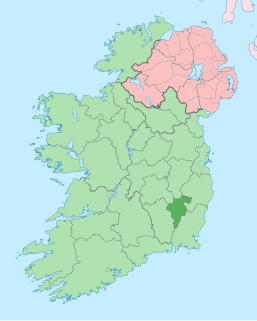 W
WThe Irish pork crisis of 2008 was a dioxin contamination incident in Ireland that led to an international recall of pork products from Ireland produced between September and early December of that year. It was disclosed in early December 2008 that contaminated animal feed supplied by one Irish manufacturer to thirty-seven beef farms and nine pig farms across Republic of Ireland, and eight beef farms and one dairy farm in Northern Ireland, had caused the contamination of pork with between 80 and 200 times the EU's recommended limit for dioxins and dioxin-like PCBs i.e. 0.2 ng/g TEQ fat. The Food Safety Authority of Ireland moved on 6 December to recall from the market all Irish pork products dating from 1 September 2008 to that date. The contaminated feed that was supplied to forty-five beef farms across the island was judged to have caused no significant public health risk, accordingly no recall of beef was ordered. Also affected was a dairy farm in Northern Ireland; some milk supplies were withdrawn from circulation.
 W
WPeanut Corporation of America (PCA) was a peanut-processing business with headquarters in Lynchburg, Virginia, plants in other southern states, and distribution across the United States, now defunct as a result of one of the most massive and lethal food-borne contamination events in U.S. history. PCA was founded in 1977 and initially run by Hugh Parnell, father of Stewart Parnell, with him and two other sons. The company was sold in 1994–1995 with the senior Parnell retiring, and with Stewart Parnell and others remaining with the new company as consultants. In 2000, control of PCA returned to Stewart Parnell via a private sale. Over this history, PCA came to operate processing facilities in Blakely, Georgia, Suffolk, Virginia, and Plainview, Texas, providing peanut and peanut butter products primarily to the "institutional food" market, to food manufacturers for use in cookies, snacks, ice cream, and dog treats, and to other low-end markets.
 W
WThe 2011 United States listeriosis outbreak was a widespread outbreak of Listeria monocytogenes food poisoning across 28 US states that resulted from contaminated cantaloupes linked to Jensen Farms of Holly, Colorado. As of the final report on August 27, 2012, there were 33 deaths and 147 total confirmed cases since the beginning of the first recorded case on July 31, 2011. It was the worst foodborne illness outbreak in the United States, measured by the number of deaths, since the Centers for Disease Control and Prevention began tracking outbreaks in the 1970s, or tied with the worst, an outbreak of listeria from cheese in 1985, depending on which CDC report is used.
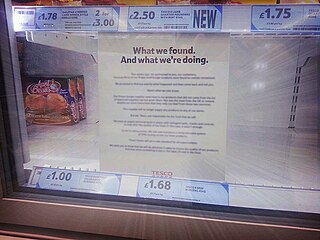 W
WThe 2013 horse meat scandal was a food industry scandal in parts of Europe in which foods advertised as containing beef were found to contain undeclared or improperly declared horse meat – as much as 100% of the meat content in some cases. A smaller number of products also contained other undeclared meats, such as pork. The issue came to light on 15 January 2013, when it was reported that horse DNA had been discovered in frozen beefburgers sold in several Irish and British supermarkets.
 W
WFrom April 20 to May 8, 2016, at least 33 people, including five children, died in District Layyah, Punjab Pakistan after eating a purposely poisoned laddu, a baked confection. Testing of the confectioneries revealed they were laced with the highly toxic insecticide chlorfenapyr. One of the owners, Khalid Mahmood confessed to mixing the pesticide into the sweets after an argument with his brother and co-owner.
 W
WThe 2017 Fipronil eggs contamination is an incident in Europe and Asia involving the spread of fipronil insecticide which contaminated human consumed chicken eggs and egg products.
 W
WThe 2017–2018 South African listeriosis outbreak was a widespread outbreak of Listeria monocytogenes food poisoning that resulted from contaminated processed meats produced by Enterprise Foods, a subsidiary of Tiger Brands, in Polokwane. There were 1,060 confirmed cases of listeriosis during the outbreak, and about 216 deaths. It is the world's worst ever listeriosis outbreak.
 W
WThe 2018 Australian rockmelon listeriosis outbreak was an outbreak of Listeriosis, caused by the bacteria Listeria monocytogenes, later traced to rockmelon grown by Rombola Family Farms in the Riverina region of New South Wales, Australia.
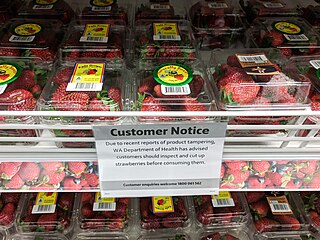 W
WIn a food safety crisis beginning in September 2018, numerous punnets of strawberries grown in Queensland and Western Australia were found to be contaminated with needles. Queensland Police reported that by November 2018, there had been 186 reports of contamination nationally.
 W
WOn 16 July 2013, at least 23 students died, and dozens more fell ill at a primary school in the village of Gandaman in the Saran district of the Indian state of Bihar after eating a Midday Meal contaminated with pesticide. Angered by the deaths and illnesses, villagers took to the streets in many parts of the district in violent protest. Subsequently, the Bihar government took a series of steps to prevent any recurrence of such incidents.
 W
WThe 1858 Bradford sweets poisoning was the arsenic poisoning of more than 200 people in Bradford, England, when sweets accidentally made with arsenic were sold from a market stall. Twenty-one victims died as a result. The event contributed to the passage of the Pharmacy Act 1868 in the United Kingdom and legislation regulating the adulteration of foodstuffs.
 W
WFood safety incidents in China have received increased international media scrutiny following the reform and opening of the country, and its joining the World Trade Organization. Urban areas have become more aware of food safety as their incomes rise. Food safety agencies in China have overlapping duties. The 2008 Chinese milk scandal and COVID-19 pandemic received the most attention among food safety incidents.
 W
WThe 2012 Czech Republic methanol poisonings occurred in September 2012 in the Czech Republic, Poland and Slovakia. In the course of several days, 38 people in the Czech Republic and 4 people in Poland died as a result of methanol poisoning and many others were taken to hospital. The poisonings continued for several years after the main wave. As of April 2014, there were 51 dead and many others suffered permanent health damage.
 W
WDonoghue v Stevenson [1932] UKHL 100 was a landmark court decision in Scots delict law and English tort law by the House of Lords. It laid the foundation of the modern law of negligence, establishing general principles of the duty of care.
 W
WThe Esing Bakery incident, also known as the Ah Lum affair, was a food contamination scandal in the early history of British Hong Kong. On 15 January 1857, during the Second Opium War, several hundred European residents were poisoned non-lethally by arsenic, found in bread produced by a Chinese-owned store, the Esing Bakery. The proprietor of the bakery, Cheong Ah-lum, was accused of plotting the poisoning but was acquitted in a trial by jury. Nonetheless, Cheong was successfully sued for damages and was banished from the colony. The true responsibility for the incident and its intention—whether it was an individual act of terrorism, commercial sabotage, a war crime orchestrated by the Qing government, or purely accidental—both remain a matter of debate.
 W
WThe March 5, 1973, Great Michigan Pizza Funeral was the ceremonial disposal of 29,188 frozen cheese and mushroom pizzas in Ossineke, Michigan. The manufacturer, Mario Fabbrini, had been ordered to recall the pizzas by the Food and Drug Administration (FDA) after initial tests suggested botulism was present in a batch of canned mushrooms. Fabbrini decided to ceremonially dispose of the pizzas to demonstrate accountability and receive publicity. The pizzas were tipped into an 18-foot (5.5 m) deep hole in the ground before a crowd of onlookers, who were addressed by Michigan governor William Milliken. Later tests by the FDA ruled out botulism. Fabbrini sued his suppliers and the Michigan Court of Appeals awarded him $211,000 in 1979, though he closed his business a few years later.
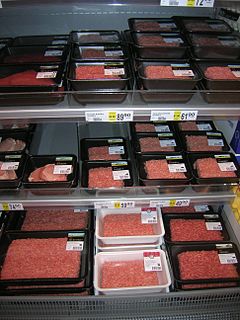 W
WA controversy surrounding the illegal repackaging of out-of-date meat led the Swedish grocery store chain ICA to take actions towards a better quality work in the stores. Prosecutors have launched a criminal investigation into four stores in the ICA supermarket chain, after a television documentary aired on December 5, 2007, revealed that they had repackaged out-of-date ground meat and put it back on the shelves in four of the largest hypermarkets in Sweden. ICA apologised, suspended all of its Christmas commercials and summoned all 1,400 store managers to an emergency meeting in Stockholm.
 W
WThe 1971 Iraq poison grain disaster was a mass methylmercury poisoning incident that began in late 1971. Grain treated with a methylmercury fungicide and never intended for human consumption was imported into Iraq as seed grain from Mexico and the United States. Due to a number of factors, including foreign-language labelling and late distribution within the growing cycle, this toxic grain was consumed as food by Iraqi residents in rural areas. People suffered from paresthesia, ataxia and vision loss, symptoms similar to those seen when Minamata disease affected Japan. The recorded death toll was 459 people, but figures at least ten times greater have been suggested. The 1971 poisoning was the largest mercury poisoning disaster when it occurred, with cases peaking in January and February 1972 and stopping by the end of March.
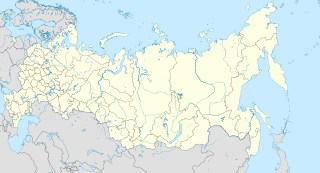 W
WIn December 2016, 78 people died in a mass methanol poisoning in Irkutsk, one of the largest cities in Siberia, Russia. Precipitated by drinking counterfeit surrogate alcohol, the death toll led the Associated Press news agency to call it "unprecedented in its scale".
 W
WThe 1993 Jack in the Box E. coli outbreak occurred when the Escherichia coli O157:H7 bacterium killed four children and infected 732 people across four states. The outbreak involved 73 Jack in the Box restaurants in California, Idaho, Washington, and Nevada, and has been described as "far and away the most infamous food poison outbreak in contemporary history." The majority of the victims were under 10 years old. Four children died and 178 other victims were left with permanent injury including kidney and brain damage.
 W
WOn February 3, 1975, 197 people fell ill aboard a Japan Airlines Boeing 747 en route from Anchorage, Alaska to Copenhagen, Denmark after consuming an in-flight meal contaminated with Staphylococci. 144 people needed hospitalization, making it the largest food poisoning incident aboard a commercial airliner.
 W
WMeat Hope Inc. was a meat processing and wholesaling company headquartered in Tomakomai, Hokkaido, Japan. It went bankrupt in 2007 after several scandals of fraudulently labeling foodstuffs, including a ground beef fraud scandal.
 W
WPeanut Corporation of America (PCA) was a peanut-processing business with headquarters in Lynchburg, Virginia, plants in other southern states, and distribution across the United States, now defunct as a result of one of the most massive and lethal food-borne contamination events in U.S. history. PCA was founded in 1977 and initially run by Hugh Parnell, father of Stewart Parnell, with him and two other sons. The company was sold in 1994–1995 with the senior Parnell retiring, and with Stewart Parnell and others remaining with the new company as consultants. In 2000, control of PCA returned to Stewart Parnell via a private sale. Over this history, PCA came to operate processing facilities in Blakely, Georgia, Suffolk, Virginia, and Plainview, Texas, providing peanut and peanut butter products primarily to the "institutional food" market, to food manufacturers for use in cookies, snacks, ice cream, and dog treats, and to other low-end markets.
 W
WPet Fooled is a 2016 American independent documentary film exploring the pet food industry with interviews from veterinarians and pet owners whose pets died, they allege, due to commercial packaged pet food. After premiering at the Catalina Film Festival on 2 October 2016, the film had an "on demand theatrical run" via Gathr, after which it became available on VOD platforms on 10 January 2017. The film is currently available to Netflix subscribers, as a digital download on iTunes or as a physical DVD via Amazon. The film, produced by Myla Films and directed/narrated by Kohl Harrington, was distributed by Gravitas Ventures.
 W
WThe StarLink corn recalls occurred in the autumn of 2000, when over 300 food products were found to contain a genetically modified corn that had not been approved for human consumption. It was the first-ever recall of a genetically modified food. The anti-GMO activist coalition Genetically Engineered Food Alert, which detected and first reported the contamination, was critical of the FDA for not doing its job. The recall of Taco Bell-branded taco shells, manufactured by Kraft Foods and sold in supermarkets, was the most publicized of the recalls. One settlement resulted in $60 million going to Taco Bell franchisees for lost sales due to the damage to the Taco Bell brand.
 W
WToxic oil syndrome or simply toxic syndrome is a musculoskeletal disease. A 1981 outbreak in Spain killed over 600 people and is thought to have been caused by contaminated colza oil. Its first appearance was as a lung disease, with unusual features, though the symptoms initially resembled a lung infection, antibiotics were ineffective. The disease appeared to be restricted to certain geographical localities, and several members of a family could be affected, even while their neighbours had no symptoms. Following the acute phase, a range of other chronic symptoms was apparent.